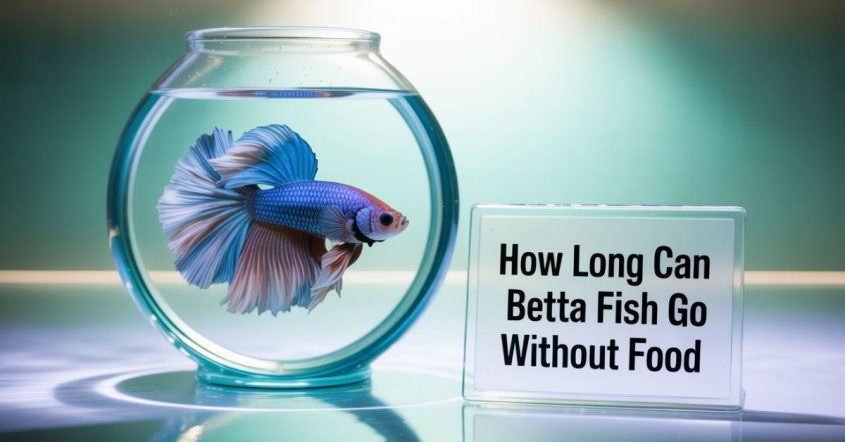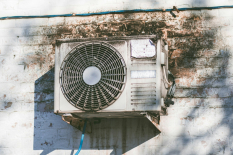Betta fish, also known as Siamese fighting fish, are one of the most popular freshwater aquarium fish. Their vibrant colors and graceful fins make them a favorite choice for beginners and experienced fish keepers alike. As pet owners, we naturally want the best for our fish, including proper care and feeding.
One of the most common questions asked by betta fish owners is: How long can my betta fish survive without food? Whether you’re planning a vacation or just curious, understanding the answer to this question is essential. It helps ensure your betta remains healthy even when you’re away.
In this article, we’ll explore how long betta fish can go without food, what happens when they fast, how to prepare for time away, and best practices for their care.
Typical Feeding Habits of Betta Fish
Betta fish have specific dietary needs. In the wild, they are carnivores and feed on insects and larvae. In captivity, their diet should mimic this as closely as possible.
Recommended Feeding Frequency
- Feed your betta once or twice a day.
- Offer only what they can consume in 2 minutes.
Best Food Choices
- Betta pellets made for carnivorous fish.
- Freeze-dried or frozen food like bloodworms and brine shrimp.
- Occasional live food treats (if available and safe).
Portion Sizes
- Betta fish have small stomachs—about the size of their eye.
- Overfeeding can lead to bloating and dirty water, which harms their health.
Survival Duration Without Food
So, how long can a betta fish really go without food?
Average Timeframe
- A healthy adult betta fish can survive 7 to 14 days without food.
- However, this does not mean it is healthy or ideal to starve your fish.
Factors That Influence This Duration
- Age – Older bettas may be weaker and less able to handle fasting.
- Health – A sick or injured fish will need nutrition to heal and survive.
- Water Temperature – Warmer water increases metabolism, making the fish burn energy faster. Cooler water slows metabolism.
- Activity Level – More active fish will use up energy reserves quicker.
Even though they can survive without food for over a week, it should be avoided unless necessary.
Effects of Fasting on Betta Fish
Missing a day or two of feeding won’t hurt your betta fish. But as the fasting period increases, so do the risks.
Short-Term Fasting (1–3 Days)
- Betta fish can easily handle this duration.
- In fact, occasional fasting helps with digestion.
- No visible changes in behavior or health.
Mid-Term Fasting (4–7 Days)
- Betta may start showing signs of low energy.
- Less swimming, more hiding.
- Immune system may begin to weaken.
Long-Term Fasting (Beyond 7 Days)
- Major decline in health.
- Color fading, clamped fins, sunken belly.
- Higher risk of diseases due to weakened immunity.
- In severe cases, organ failure and death.
Fasting should only be allowed when there’s no other option, like an emergency or unavoidable trip.
Preparing for Absences
If you’re planning a vacation or need to be away for a few days, it’s important to plan ahead for your betta fish’s care.
1. Use an Automatic Feeder
- These devices release small amounts of food on a schedule.
- Make sure to test the feeder before leaving to ensure it works correctly.
2. Ask a Friend or Family Member
- Leave clear instructions: how much and how often to feed.
- Avoid overfeeding—write it down clearly!
3. Avoid Overfeeding Before Leaving
- Overfeeding does not help.
- It causes waste buildup, dirty water, and health issues.
4. Do a Water Change Before You Leave
- Clean water will help your betta stay healthy while you’re away.
5. Keep the Tank Stable
- Ensure the water heater is working.
- Set a timer for lights if needed.
Recognizing Signs of Starvation
Sometimes, even with planning, your betta may not eat. Knowing the signs of starvation can help you act quickly.
Behavioral Signs
- Lethargy: your fish is inactive or hides a lot.
- Aggression: sometimes a starving betta becomes more aggressive.
- Lack of interest in surroundings.
Physical Signs
- Faded colors: bright colors begin to dull.
- Sunken belly: a clear sign of nutrient deficiency.
- Clamped fins: fins are held close to the body instead of fanning out.
If you notice these signs, return to a proper feeding schedule right away and monitor the fish closely.
Best Practices for Betta Fish Care
Feeding is just one part of responsible betta care. Here are some additional tips to keep your betta healthy and happy:
1. Maintain Clean Water
- Perform regular partial water changes (25–50% weekly).
- Use a water conditioner to remove harmful chemicals.
2. Keep Water Temperature Stable
- Betta fish thrive in 76–82°F (24–28°C).
- Sudden changes can stress them.
3. Monitor Tank Size and Environment
- Minimum recommended tank size is 5 gallons.
- Add plants or decorations for enrichment.
4. Observe Your Betta Daily
- Check for changes in behavior or appearance.
- Early detection of problems helps prevent serious issues.
5. Use a Consistent Feeding Routine
- Try to feed at the same time daily.
- Skip one feeding per week to aid digestion.
Conclusion
Betta fish are resilient and can survive without food for up to 14 days, but it’s not ideal or healthy for them. Short-term fasting is okay and may even help with digestion, but anything beyond a few days should be planned carefully. By understanding their needs and preparing for absences, you can ensure your betta stays healthy and stress-free. Use tools like automatic feeders or ask for help from someone you trust. Keep their environment clean and stable. Taking a little time to prepare can make a big difference in the health and happiness of your betta fish.
















